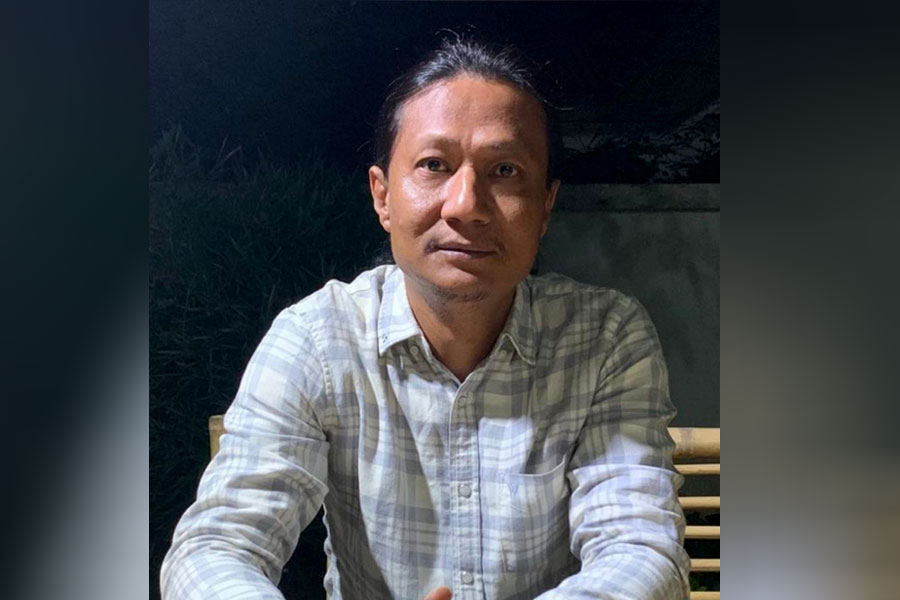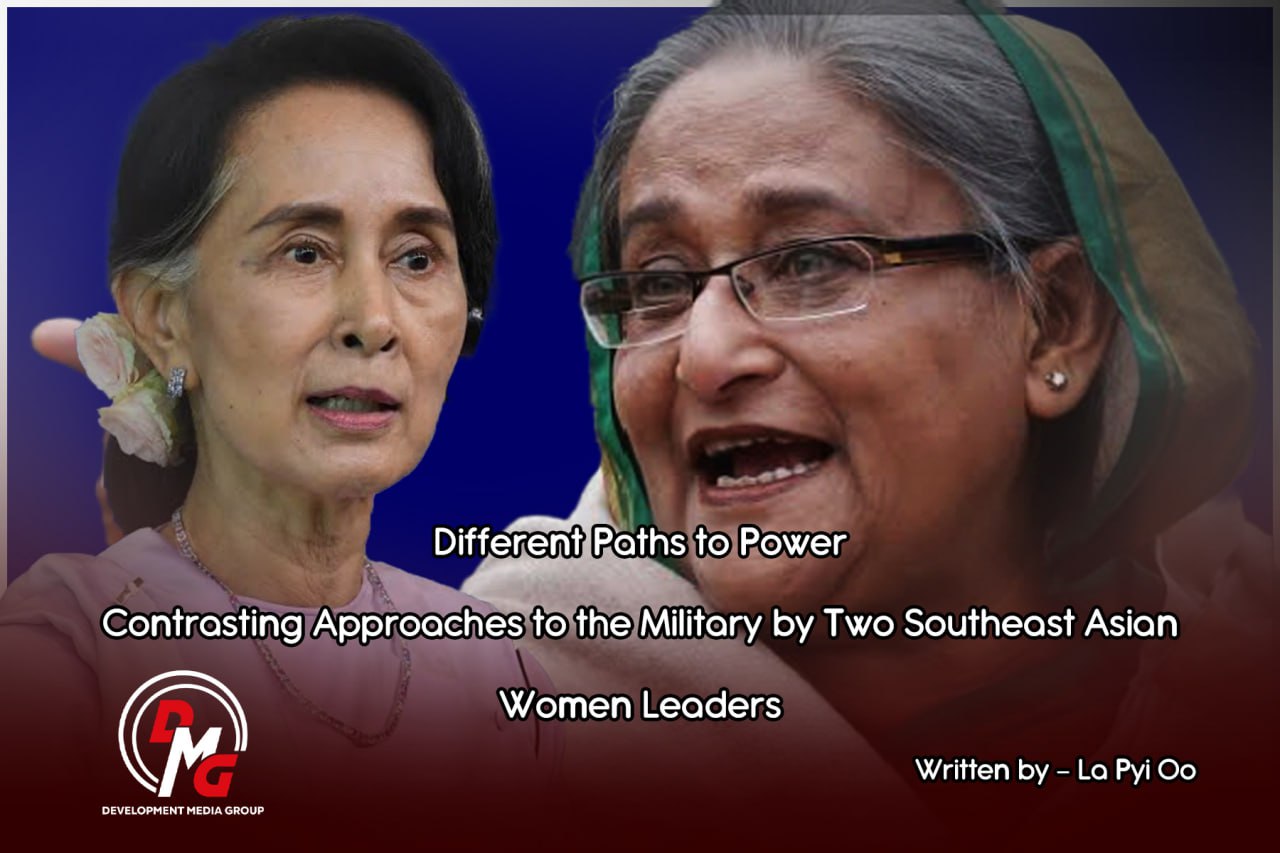- Muslim militiamen flee junta camps in Sittwe amid oppression, discrimination
- Junta navy activities halt fishing in Thandwe
- Junta airstrike kills 21 POWs, family members at Kyauktaw detention centre
- Arakan Army seeks to expand territorial control in Sittwe
- 6-year-old girl raped in Maungdaw; suspect arrested
Interview: Researcher talks war crimes, international inaction on Myanmar
“As for the public, since the beginning of the Spring Revolution, they had hoped to receive the help and protection of the international community. Myanmar people are relying on the international community to resolve the current Myanmar conflict with Responsibility to Protect (R2P) and establish a no-fly zone.”
26 Sep 2024

DMG Newsroom
26 September 2024, Sittwe
Myanmar's military regime, which has lost large swaths of territory to anti-junta forces in recent months, is increasingly and in many cases almost exclusively relying on airstrikes to defend its positions as its ability to effectively counter the attacks with ground forces declines.
During this period, critics say the regime has made clear its disinterest in observing the laws of war as civilians are caught up in fighting in ways that, at best, constitute human rights violations and more likely qualify as war crimes and crimes against humanity.
Against that backdrop, DMG interviewed Ko Moe Htet Nay, political and research advisor for Nyan Lin Thit Analytica, a local research group that monitors armed conflict, revolutionary forces and the military regime.
DMG: What kinds of war crimes are being committed by the military regime across Myanmar?
Moe Htet Nay: Since the 2021 coup, the military has committed many war crimes targeting the civilian population. The military has conducted raids, burned down villages, looted public property, brutally arrested and killed residents, and used them as human shields.
The military has attacked civilian areas and displacement camps with heavy weapons, and is shooting from the air with drones, jet fighters, and helicopters. Among the military's attacks, airstrikes have affected the civilian population the most.
DMG: How do these attacks on civilian populations affect the people?
Moe Htet Nay: Air raids make it difficult for people to escape, and the anti-regime forces do not have enough weapons and technology to defy air raids. Due to the military regime's airstrikes, the [civilian] population has suffered more and the rate of death and property damage has been higher.
If we look at why the military regime conducts airstrikes, we can understand that they want to attack the people; [the regime] wants to take revenge against them for helping these revolutionaries, and the other [motivation] is to create fear among the people.
DMG: How bad are the military regime's airstrikes?
Moe Htet Nay: From February 2021 to February 10, 2024, the military regime conducted at least 3,600 airstrikes. We see that the military regime is carrying out more airstrikes every year. The military regime used more high-explosive bombs and missiles in airstrikes in northern Shan State. Due to the military regime's airstrikes, the rate of people being killed and injured, and destruction of village farms and domesticated animals, is getting worse.
DMG: Who is most affected by the regime's airstrikes?
Moe Htet Nay: In addition to women and children, the elderly and disabled were among those affected by the military's airstrikes. The regime is conducting airstrikes separately in some areas, while in some areas, heavy weapons, airstrikes, and military raids are being carried out at the same time.
The military's actions against civilians are very terrible for women and children. In addition to raids, the military has been using heavy weapons to fire more than just airstrikes. Recently, drones have been used for bombings, which are difficult to dodge, and because they are unable to run at a moment's notice, there are also injuries and deaths.
DMG: How do you view international action against a military regime that is committing war crimes?
Moe Htet Nay: As for the public, since the beginning of the Spring Revolution, they had hoped to receive the help and protection of the international community. Myanmar people are relying on the international community to resolve the current Myanmar conflict with Responsibility to Protect (R2P) and establish a no-fly zone.
When the international community could not help as much as expected, the Myanmar people continued to do their revolutionary duties such as participating in the armed revolution and helping each other with the mindset that they had to rely on themselves. The people asked the international community not to recognise the army politically and economically, and not to sell jet fuel [to the regime]. Looking at the airstrikes of the military to this day, it can be considered that this public demand has not been effective in practice.
DMG: What factors are behind the ineffectiveness of the public's demands for action against the military regime? What should the people do next?
Moe Htet Nay: International organisations, civil society organisations, and the public have asked the international community not to sell jet fuel to the Myanmar military. Why is it ineffective in practice? We cannot forget the fact that various countries in the field of international relations think and respond based on their respective interests.
Another thing is that every country must be measured by the ethics and standards placed on humanity. Countries with strong ethical standards will not sell jet fuel and weapons to the Myanmar military, but countries with poor ethical standards will continue to cooperate in committing war crimes by selling jet fuel and weapons to the Myanmar military. As for us, the war crimes committed by the Myanmar military must be made more known to the international community. I think this is all we can do.
DMG: Recently, the military regime asked China for technical assistance with drones and aerial military equipment. What do you think about this?
Moe Htet Nay: As for the Myanmar military, it is trying hard to save itself politically and militarily. The military regime is constantly trying to get military and political assistance from not only neighbouring China, but also North Korea, Russia, Iran and India. I have nothing special to comment on this.
As I just said, we must also monitor the ethical standards of [the leadership] in a country. China and Russia have always dealt closely with successive military rulers in Myanmar. Just as China and Russia have supported successive military dictators in Myanmar politically, they have been doing it all along by selling mechanised weapons, providing weapons manufacturing technology, and providing military education. This is not a unique situation, and we see that these are issues that must be considered among the challenges of this revolution.
DMG: What do you want to say about China ignoring the wishes of the people and supporting the Myanmar military?
Moe Htet Nay: In recent years, China has expressed its desire to stand as a great power that takes the lead in the world agenda with its developed economy, technology, and military power. China intervened in Russia's invasion of Ukraine, and comments on Israel-Palestine issues have also been made. As for Myanmar, which is China's neighbouring country, it has been dealing with various sides all along. There is [compared with Ukraine and Israel-Palestine] even worse Chinese interference in Myanmar's internal affairs.
China is working closely with the Northern Alliance to crack down on online fraud, which can be said to be a national threat to its country, while simultaneously cooperating with the military. We need to keep in mind that China is engaging in multilateralism based on its own interests.
As far as we are concerned, we need to continue with the purpose of the revolution. When China considers dealing with the Myanmar military, it needs to take into account the war crimes committed by this army and the lawless killing of many people. I would like to say that China might reconsider the value it places on humanity both internationally and in the eyes of its own people.
DMG: Do you have anything to add about the military regime's human rights violations?
Moe Htet Nay: Airstrikes are the Myanmar military's only advantage. The Myanmar military is also carrying out targeted air attacks on the people almost every day. In the current situation, we do not have the weapons and technology to respond to airstrikes by the Myanmar military, but we keep systematic records of each airstrike. We strongly believe that these records will one day bring justice to those who died, [suffered injuries], and lost their homes and property due to the Myanmar military's airstrikes.





.jpg)














